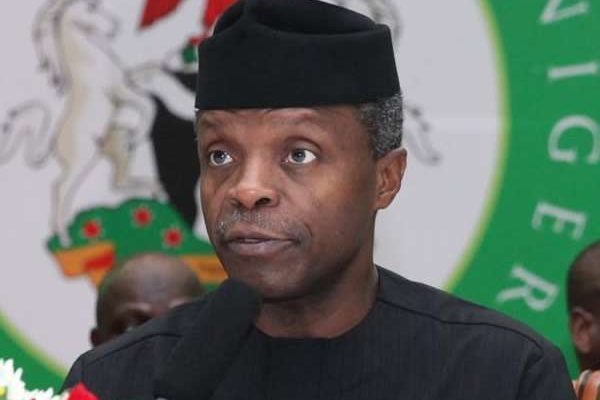Why Corruption, Terrorism Fester- FG
Vice President, Yemi Osinbajo Tuesday in Abuja disclosed that anonymous corporate ownership of companies were covering up ‘multitude of sins’ across the country.
The Vice President listed vulnerable areas in secret corporate ownership to include conflicts of interest, corruption, tax evasion, money laundering, and terrorism financing.
According to him, the devastating effect of secret ownership and beneficial ownership on economies across Africa required that governments and other relevant authorities must collaborate to stem the tide.
“Although anonymous companies are not always illegal, secrecy provides a convenient cover for criminality and corruption nevertheless,” Osinbajo said in his keynote speech in Abuja.
“Our experience in Nigeria, as in other developing countries, is that anonymous corporate ownership covers a multitude of sins, including conflict of interests, corruption, tax evasion, money laundering, and terrorism financing.”
He said that another matter of concern that the international community must work together to solve was that of secret corporate ownership and the whole issue of beneficial ownership.
“Developing world, especially Africa, must break the wall of secret corporate ownership because secrecy around corporate ownership is implicated in the continent’s underdevelopment,” he said.
The Vice President regretted that, over the years, massive public resources and assets had been directly stolen, diverted, “deliberately misapplied to gratify corrupt tendencies, stashed in foreign jurisdictions or mired in and susceptible to pilferage by the inequitable and unjust international economic system that continues to undermine the social and economic development aspirations of poor countries, especially from Africa.”
He warned that, without effectively combating corruption, IFFs and promoting international cooperation for asset recovery and return, Africa could not achieve the Sustainable Development Goals.
Goal 16 of the SDGs is devoted to corruption and committed to reducing illicit financial flows and arms flows, strengthen recovery and return of stolen assets as well as combat all forms of organised crime by 2030.
Noting that there was no magic bullet to ending corruption, stemming IFFs or promoting asset recovery and return, he added: “We simply must work hard at it and be determined to succeed. We must make corruption expensive for those who engage in it and send the unequivocal message that corruption simply does not pay.”
“We must also make all members of the international community see the benefit of shared prosperity and inclusive growth and development. It is the unenviable but noble task of ICPC and other anti-corruption agencies to make corruption unattractive to its disciples and facilitate new approaches to stemming IFFS and promoting asset recovery and return.” We must democratise the fight against corruption. Many of our citizens are interested in the fight against grand corruption.
“Grand corruption as you know, cripples the economy. But they also want to see action in what would be regarded as petty corruption – in their interfaces with government officials either in search for certifications, approvals or licenses and all of that.”
Osinbajo said that many would want to see corruption at the civil service level tackled effectively, as well as more innovative ways of doing so.
“We must protect, even more, whistle-blowers – persons who come forward with information against corruption. We must protect those who are ready to fight against corruption and who are prepared to do so without necessarily disclosing their identities, and even those who are ready to disclose their identities.”
The VP, however, warned that corruption would often fight back. ‘‘And it is fighting back because it has the resources to do so. In recent times, one of the chief ways that we are seeing more frequently is the use of unscrupulous individuals who are paid to use social media platforms to make outrageous allegations against persons perceived to be fighting corruption.
“The fight against corruption is nuanced and hydra-headed; it is not going to get easier by the day; as a matter of fact, it will get more difficult by the day and many will become discouraged in standing up against corruption,” he said.
Earlier in his opening remarks, ICPC Chairman, Prof. Bolaji Owasanoye said that the Commission had in the past 20 years recorded a number of achievements




